Life in Moria refugee camp is difficult. Situated on the island of Lesbos in Greece, currently over 8,500 people are crammed into a space which, according to official numbers, only has the capacity for 3,100. A BBC report published yesterday revealed that children as young as 10 are attempting suicide.
The majority of those living in Moria are fleeing danger in Syria, Iraq and Afghanistan. At Moria, they make their claims for asylum but the asylum process is painfully slow. People are left with no choice but to stay at Moria for extended periods of time – some for over a year.
Food lines are long. Water supply is limited. The number of toilets and showers do not come close to meeting the need. The medical services are desperately under-resourced. There is next to no psychological support. Tensions are high. Fights are an almost daily occurrence. In a devastating twist, families who have fled war, and come to Europe in search of safety, find themselves fleeing Moria in the middle of the night when riots break out.
These seven objects belong to asylum-seekers living in Moria. Each of them tells a story about the reality of life at the site.
A bag
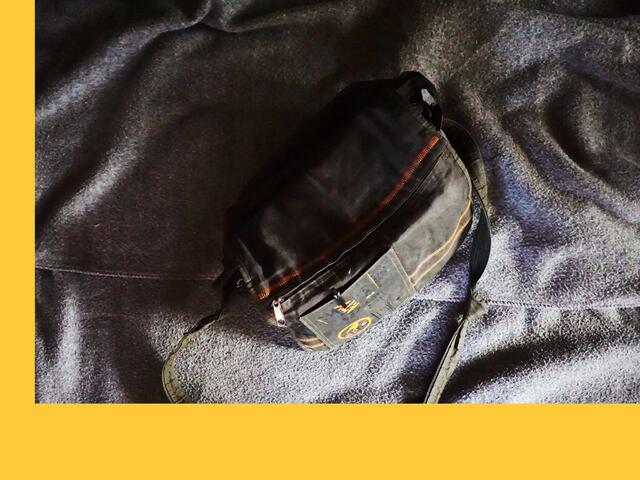
The majority of people at Moria have come to Europe in search of safety. They are fleeing war and were forced to leave everything they owned behind them. In far too many cases, what they were able to carry with them has been lost at sea, or stolen.
Seven years ago, we had everything... now, we have lost everything
Kamar, from Ghouta, Syria, told us: “Seven years ago, we had everything. We had two houses, a car, money in the bank. Now we have to live here and we don’t have anything to wear. We didn’t need help from anyone, and now we have lost everything.”
1.5 litres of water
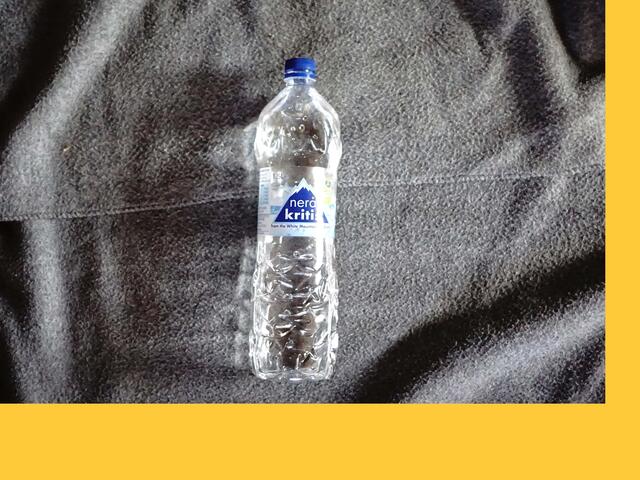
At Moria each family gets 1.5 litres of water per person, per day. You are expected to cook with this water, and stay hydrated. You must get up at 4am in order to ensure that you will receive this water, which is distributed at 8am. The line is long and tensions rise. Men and women will try to break the line and fights ensue. And it is hot here. 1.5 litres is not enough.
Cardboard
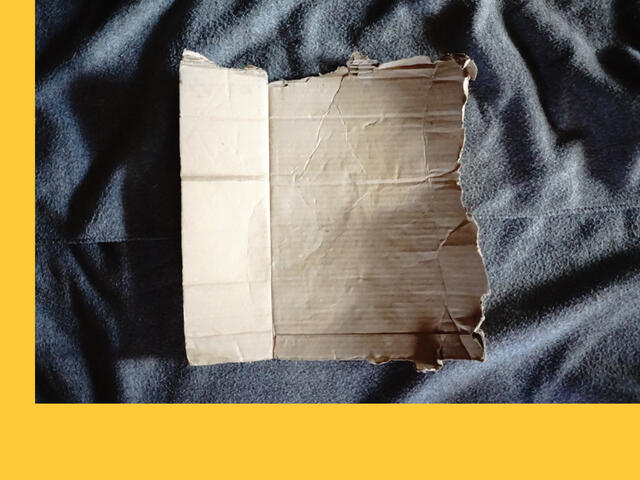
The heat is intense. Due to the overcrowding, some families are living in poorly ventilated tents where the air swelters. Sweat pours from your brow within seconds of entering. For lack of better alternatives, families improvise. Cardboard makes a workable fan.
A bar of soap
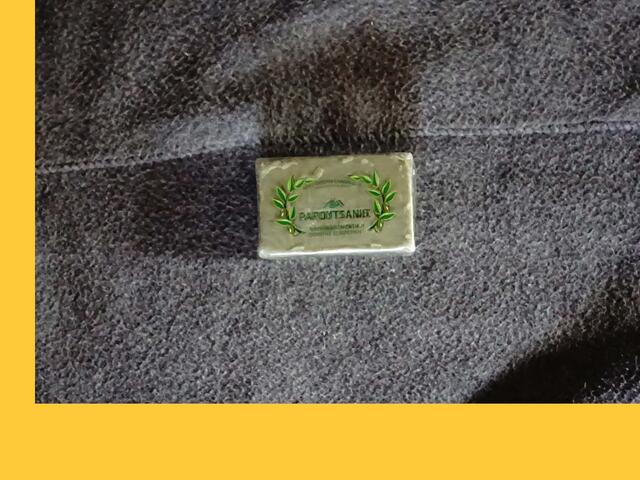
The washroom facilities at Moria are appallingly inadequate. 84 people are expected to share one shower. 72 people are expected to share one toilet. Sanitary conditions do not uphold humanitarian standards. There is no privacy. Showers have windows which means people can look in. Women are afraid to use the toilets and showers on their own. Water is not available 24/7.
I cannot take this life anymore
Saya, a Syrian woman from Idlib says: “I cannot take this life anymore. It is really difficult. Even if I want to go to the bathroom, I have to take my husband with me.”
A child's toothbrush
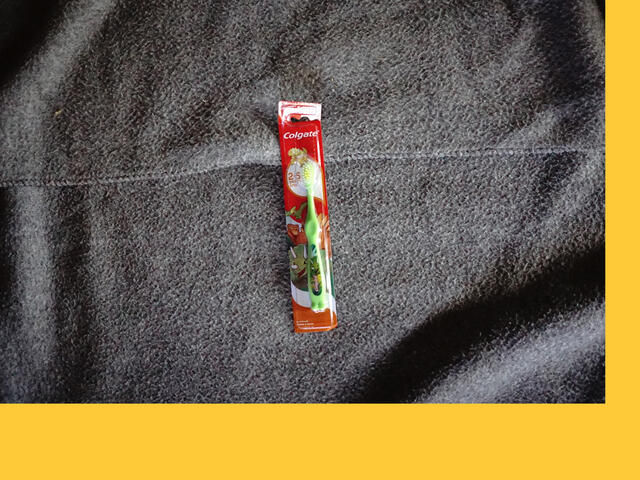
This toothbrush belongs to one to the thousands of children living in Moria. The fights, the riots, the tension and the stress - the children are witness to it all. They watch as their parents break down because they have reached their limit. They look on while a mother describes how their youngest sister is “special,” because her heart is on the right side of her torso and she needs urgent medical treatment. They rise at 4am to join their father in line for water. With limited opportunities to learn at Moria, their parents fear for their future. Syrian children under the age of 10 are likely to have never seen the inside of a classroom.
I am afraid for my daughters, because they haven’t seen a school
Majd, a Syrian father from Ghouta says: “I am afraid for my daughters, because they haven’t seen a school. If they don’t go to school, I am afraid for their future.”
And they worry for their safety.
One Syrian mother, traveling alone, and hoping to reach her husband in Germany says that although she is strong, she constantly frets for her daughters.
“Everyone tells me to be careful for my daughters. Don’t let them go out alone," she says.
Chicken
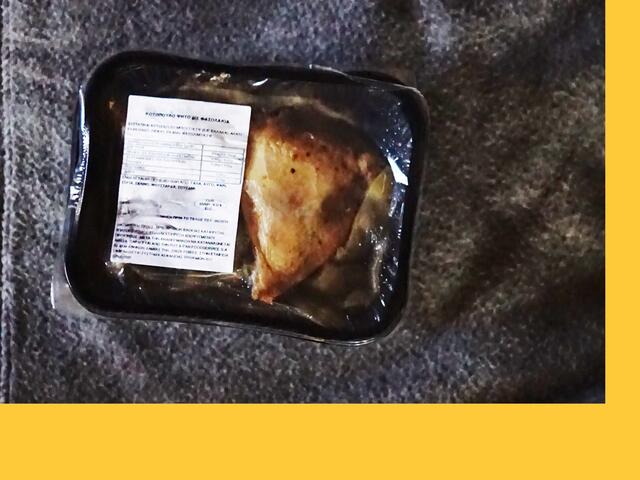
No-one likes to stand in line for the food, and no-one likes the food. In one tent, a Syrian lady said she found a worm in her food the day before. In another, a mouse darted past the food container and disappeared. That said, asylum seekers rise at 4am to get breakfast, which is distributed between 8 and 8:30am. Just like the water, if you miss that window, you miss the food.
One Syrian mother, from Deir Ezzour, who is seven months pregnant, stood in line three mornings in a row because her husband was sick. “Everyone was pushing each other. I was trying to say that I am pregnant but they didn’t believe me.”
One morning, she got hurt. Her husband refused to let her go again.
Family photos
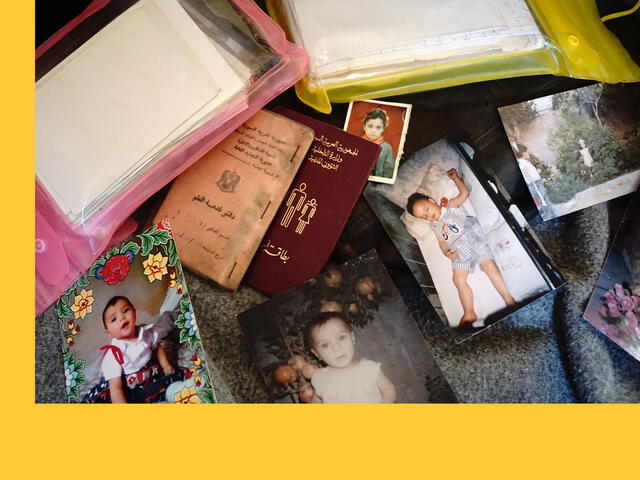
Majd, the Syrian from Ghouta and father of four, is frantic when he talks about his wife, Hayat. She is fading away, he says. From their only bag, he pulls out photos of her from a much happier time: their wedding day. And it is true. She has lost a lot of weight. She pulls up the side of her shirt to reveal an extensive scar from a burn she received when a bomb went off. She ran for shelter, but it was dark and she knocked over a boiling kettle. She cannot sleep from the pain.
But that, in itself, is nothing to her. Their youngest daughter who is two years old now, spent 6 months in hospital after a chemical attack on Ghouta. For three months Hayat couldn’t touch her and could only see her through a screen.
I want to take these memories from my daughters’ heads
As she runs her hands through one of her girls’ long, dark hair, she says, “I want to take these memories from my daughters’ heads. I don’t want them to remember.”
Learn More
We're providing mental health support to people living in Moria, learn more about our work in Greece.
All names have been changed to protect the identity of those featured.